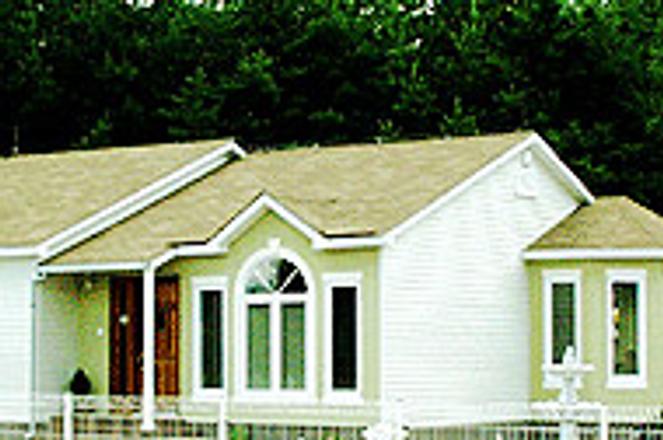MODERN Canadian houses are similar to old Slovak homes. (see the picture below)photo: Courtesy of Candom
NOT many yeas ago the Slovak media were enthusing about affordable, ecologically friendly housing using Canadian technology.
However, as bureaucracy and apathy among Slovak officials once again came to the fore, this innovative approach to housing construction failed to materialise.
The idea of using Canadian building technology in Slovakia first originated in Canada, where Slovak-Canadian joint venture company MIC-Europe was founded with the support of the Canadian government and private capital.
In Slovakia, MIC established a company called Candom in the eastern Slovak town of Spišská Nová Ves, which has been in operation since May 2000. Richard Polom, a Slovak-Canadian, is the chairman of the board of directors. The provider of the Canadian technological know-how is the company Allouette, based in the province of Québec.
Their type of housing construction is common throughout Canada, using wood-based materials that are portable and require very little alteration to fit the housing needs of customers.
"We have built almost 30 houses in different regions in Slovakia. The technology is specifically of a high quality, using low-energy consumption, and is reliable. The houses are also ecological and simple and not difficult to maintain," said Polom.
photo: Courtesy of Ján Svrček
When Candom arrived in Slovakia, its aim was to create pre-fabricated housing throughout the country based on the Canadian model using natural materials. It is Polom's view that Slovaks have a longer tradition of building in wood than other materials, such as brick and concrete.
"We also wanted to be economically competitive compared to classical buildings with lengthy and energy-consuming construction processes," added Polom.
The company also focuses on attracting young families. According to expert opinion, the average cost of a pre-fabricated house is approximately 20-25 percent lower than traditional houses.
The original idea was to establish a small construction plant manufacturing materials for pre-fabricated houses, which would employ about 200 people in eastern Slovakia, where unemployment is high. The plant would be geared up to produce about 500 houses a year.
But one of the main problems facing Candom is that young families cannot afford to buy these properties, despite their relatively low cost.
But this is not all. "Preparing land for construction is another difficulty, because the infrastructure is sub-standard and the related institutions are simply waiting for a miracle from foreign investors," said Polom.
According to Candom, the biggest advantage of this pre-fabricated housing technology is the speed of construction, which makes it possible to build the basic structure of a medium-sized house in 10 days.
Additionally, energy savings in terms of conserving heating during winter months is better than traditional houses by as much as 50 percent.
Candom can also design houses according to the requirements of individual customers, with regard to size, and the interior or exterior look of the house to meet some unusual requests.
"Many customers want their house to look 'Slovak' but most of them also want to keep a 'Canadian' look," Polom mused.
Although the project received help from the Canadian government, Slovak officials only offered minimal support.
"I have not seen any sincere interest in the development of progressive technologies from any institutions here in Slovakia. I could also list a whole range of obstacles from official institutions, from red tape to contradictory directives and laws.
"I would like to remark on one final thing: If I was not a Canadian with Slovak roots, after several weeks of this experience I would have gone back to Canada forever," said Polom.


